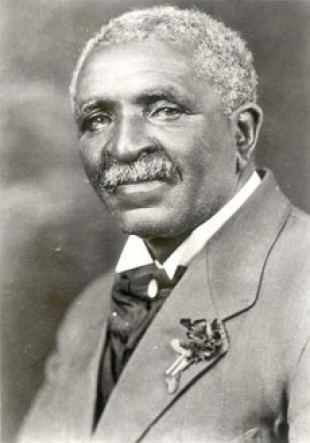Born in a slave family in 1864, George Washington Carver became a teacher, scientist, and advocate for poor African-Americans. Trained as an agricultural chemist, he pioneered programs to improve crops in his native South. Through various projects, he demonstrated how fertility could be restored to the land by diversification, especially by planting peanuts and sweet potatoes. In 1941 Time magazine dubbed him a "black Leonardo," a reference to the white Italian polymath Leonardo da Vinci.
He taught at the Tuskegee Institute in Alabama, and died on this day in 1943 after a life of service to others. Like other black leaders who followed him, he calls us to refresh our ideas about freedom and the important role of education in achieving it.
George Washington Carver is buried at Tuskegee next to Booker T. Washington. His epitaph reads: "He could have added fortune to fame, but caring for neither, he found happiness and honor in being helpful to the world."
To Name This Day:
 Films
Films
Watch a short biographical video about George Washington Carver's life and work.
 Quotes
Quotes
Reflect upon the wisdom of George Washington Carver:
- "If you love it enough, anything will talk to you"
- "Education is the key to unlock the golden door of freedom."
- "How far you get in life depends on your being tender with the young, compassionate with the aged, sympathetic with the striving and tolerant of the weak and strong. Because someday in your life you will have been all of these."
- "I love to think of nature as an unlimited broadcasting station, through which God speaks to us every hour, if we will only tune in."
- "Where there is no vision, there is no hope."
- "When you do the common things in life in an uncommon way, you will command the attention of the world."
